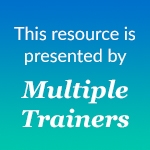

Search Results: connection
-
It's normal for us to keep something inside, avoiding sharing it with someone else as the risk may feel too high. Maybe they will reject me, or be offended and not speak to me again? It can be difficult to know when to share your truth and when to keep it inside. In this episode we layout some useful strategies that will help you speak your truth, while still keeping the connection.
-
Blame is opaque when we don’t reflect on it deeply. We blame when we don’t see ourselves as having power to shape things, and see others as the ones who can. Blame and how we respond to it, is both a symptom of inability to step into power, and an impediment to empowered relationships. Transforming blame requires self-responsibility. Read on for practices involving empathy, inner connection, power, preparation and engaging options.
-
When there's quality connection then collaboration and creativity generosity of heart can come. Then strategies honoring everyone’s needs are easier. This requires us to trust connection, hear needs, brainstorm, experiment, prepare, and hold confidence that everyone’s needs can be met. Needs-based negotiation starts there. What derails this? Feeling urgency, listening from our (dis)likes or opinions, and dire predictions.
-
Reactivity can harm relationships, but there are three keys to prevent or dissolve reactivity: discernment (recognize reactivity and interrupting it), transparency (express feelings and wants honestly and making simple requests), support for conscious connection (remind ourselves to practice prioritizing connection in interactions). Practice these to maintain fulfilling relationships and reduce impacts caused by reactivity.
-
Watch Jim and Jori Manske in this video as they share three key learnings about collaborating effectively.
-
Duke Duchscherer shares that Restorative Circles have the ability to transform relationships. Groups may start with feelings of worry, anxiety, fear, anger, and even hatred. The dialogue process supports a shift to more ease, connection, and trust.
-
Have you ever found yourself passing judgment on a co-worker's seemingly disorganized desk? Mary Mackenzie's experience sheds light on the fact that she and her colleague with the "messy desk" shared a common need for order. Recognizing that our needs align can lead to a softening of judgments, creating space for connection, understanding, and harmony.
-
Listen to this audio to learn the value of focusing on needs in an NVC model, either for the first time or as a refresher course. Living from a needs-consciousness creates abundance, clarity and choice. Using three examples from participants, Mary guides the group towards identifying and then connecting with the needs of both parties involved in each situation. It becomes clear very quickly that people choose different ways to support their needs; and many times they have the same needs in a given situation. When we understand this, we are able to create peace in our relationships and negotiations.
“Everything someone does or says is an attempt to meet a need,” says CNVC Certified Trainer Mary Mackenzie. This simple statement is a foundational understanding in Nonviolent Communication; once you gain skills at living in a “needs-consciousness” you will literally change your life and your perception of the world, and improve all of your relationships.
-
Experience the remarkable healing power of self-empathy, guided by CNVC Certified Trainers, Mary Mackenzie and Raj Gill. In this audio course, the trainers lead participants through a demonstration, and then supplement the learning with discussion and answers to questions.
-
Learn how your inner relationship forms the basis for Focusing and NVC.
-
Let's look at the resources, awareness, and skills needed to ask for emotional attunement, celebration, relatedness, perspective, understanding, advice, and information. This includes expressing appreciation for what's supporting your needs, strengthening a sense of worthiness, and awareness of your reactivity and intention. Plus, making requests that are clear, specific, doable and creates a heart connection with others.
-
Fully connecting to the deeper need under the anger can transform and release the anger, without requiring the other person to do anything differently. From there, you can reach an understanding of the other person's experience, feelings and needs underlying the actions that stimulated your anger to re-establish connection with your own and the other person's humanity.
-
Explore how IPNB and NVC intertwine in Somatic-Based Resonant Empathy and connection.
-
Discover your unique role in creating a world where everyone’s needs matter.
-
Among NVC practitioners, empathy can be superficial. How open are you to being influenced by what others are saying? Do you reflect back and then guard and remain within your position of being right, even as you say otherwise? Only when we're eager to be influenced by what they say can we connect, expand our world and thus, shift the field. Without such openness we fool ourselves into thinking we are truly empathic listeners.
-
If you dread family gatherings because of family tensions, you can find ways to excavate through piles of hardened judgments and hopelessness, build on your inner strength, and engage with family conflicts with open-hearted curiosity, greater presence, and connecting with what really matters to everyone.
-
Miki Kashtan shares how to build trust, balance power, and welcome honest “no’s” in dialogue.
-
Using his own life experience, Eric explores why we need support from others, what support might look like, and what blocks us from asking for support for our relationships.
-
Practice real-life NVC dialogue and role-play to master the dance of authentic communication.
-
Master the conversational dance through real-life NVC role play, modeling, and dialogue practice.
Quick Links

Stay in Touch!
We value your privacy, won't share your email address and you can easily unsubscribe any time.




















